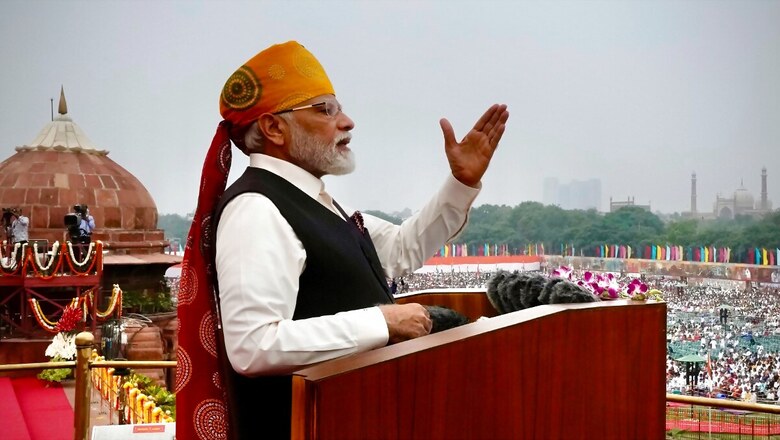
views
This Independence Day, Prime Minister Narendra Modi teased about a “new scheme” for the urban middle class that lives in rented accommodations but has aspirations of owning a home of their own. The “new scheme” Modi promised will be brought in “very soon”.
However, it may have its roots in a recommendation sent by the BJP ahead of this year’s annual budget, at the fag-end of last year, where it requested the Modi government to “take care” of the urban middle class — a loyal voter base of BJP and which the party feared was feeling “increasingly disillusioned”.
MIDDLE CLASS – THE ‘NEGLECTED’ PIE
From the ramparts of the Red Fort, the prime minister said: “The middle-class families are dreaming of buying their own houses. We are coming up with a new scheme in the coming years that will benefit those families that live in cities but are living in rented houses, slums, chawls, and unauthorised colonies. If they want to build their own houses, we will help them with relief in interest rates and loans from banks that make them save lakhs of rupees.” The target was clear — urban lower-middle class.
Interestingly, the BJP’s economic wing sent a set of recommendations last year — as it does every year — but this time asking the finance ministry to be “considerate” of the “aspirations of the middle class”.
Ahead of this year’s budget session, BJP’s economic wing head Gopal Krishna Agarwal said the BJP is mindful of the “feelings of the middle class”. The saffron party got reports that this segment is increasingly feeling “disillusioned” with the BJP, with popular sentiment being that the party is either with the poor who benefit from subsidies or free ration or the wealthy that benefit by announcing bankrupcy and turning bank loans as non-performing assets (NPAs) — an allegation repeatedly hammered by Congress leader Rahul Gandhi.
The South Block took note of it and the reflection was seen when Nirmala Sitharaman presented her budget this year, proposing how to spend 45 trillion rupees. She proposed to raise the rebate limit to Rs 7,00,000 under personal income taxes which was to directly benefit the middle class.
Ahead of the 2024 Lok Sabha election, the PM’s announcement on August 15 is seen to be another way to reach out to the BJP’s most formidable support base. No wonder he mentioned that 13.5 crore Indians have managed to move out of poverty and have become the “power of the middle class”. He did not forget to remind them that the tax restructuring helps the “salary class”.
BJP spokesperson RP Singh told News18, “If houses are built at affordable loan rates, people can have their houses and pay already easy interest instead of paying rents. Who does it benefit? The middle class.”
WHAT’S IN THE NEW SCHEME?
The Union Housing and Urban Affairs Ministry is already implementing Pradhan Mantri Awas Yojana (Urban), which was launched in 2015 and builds affordable houses in urban India. Of the four verticals under the scheme, one vertical was a credit-linked subsidy scheme. According to that vertical of PMAY-U, beneficiaries were given an interest subsidy on home loans.
However, it was not extended beyond March 31, 2022, though the remaining three verticals are extended till the end of next year. There is a prevailing confusion both in the government as well as the party if what the prime minister promised on August 15 was the continuation of that vertical or an absolutely ‘new scheme’ as PM Modi has said.
News18 reached out to officials in the Ministry of Housing and Urban Affairs as well as spokespersons of the BJP who are regularly briefed on any policy changes to articulate their points on TV. However, both said they themselves were waiting for more clarity.
As on August 17, as much as 1,18,90,000 houses are sanctioned by the PMAY-Urban scheme and an impressive 76, 25,000 houses were completed — most of which went to the urban poor or middle class.
With income tax relief and urban housing, BJP’s concerns in the 2023 year-end that made it send recommendations to the Modi government seem to have been answered. However, the BJP refuses to connect PM’s announcement with electoral benefits. “This government’s decisions are driven by public welfare. Electoral benefits, if any, don’t dictate it,” Singh said.










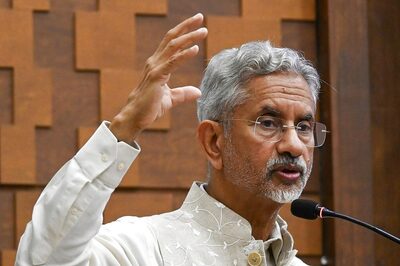

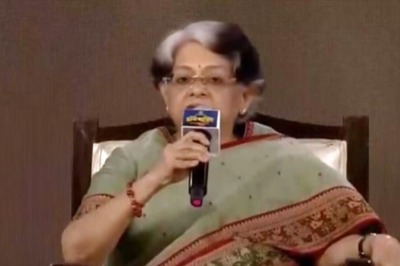

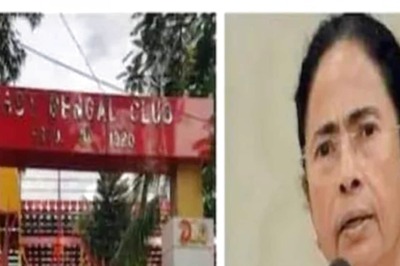
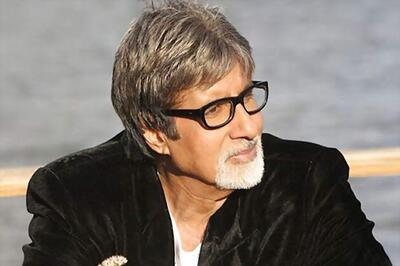




Comments
0 comment